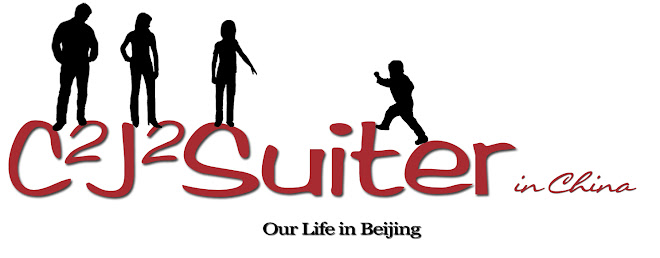I’ve been telling my friends for some time now that with the amount of milk my kids are drinking on a daily basis I should buy a cow…. It might not be such a bad idea after the latest milk scandal. Well I guess we’ll have to switch to imported milk from now on…. There is never a better time than right now to support the French farmers by buying their thrice-priced milk!
But the real question is what am I going to order at Starbuck… cannot bring myself to drink their new soy milk cappuccino.
As always in this case the Chinese are quick to point finger at other country:
Excerpt from Life Times (生命时报), a weekly newspaper on health, medicine, and wellness that grew out of the Global Times weekly supplement "Life Week”.
“Our milk has problem, your foreign milk isn’t clean either”? Whenever there's a scandal, the habitual response of certain people is to cover it up, and to minimize major problems that can't be covered up. If it can't be minimized, then there's another technique: prove that it exists in foreign countries, too. This time is no exception. Sanlu's milk powder has become kidney stone powder, and other famous national brands have been laid low as well. Life Times, a domestic paper attached to a major newspaper, has taken advantage of its position to report what its journalists, stationed all over the world, were able to find: "The safety of milk powder is actually a global problem. It's not unique to China; across the whole world, there have been milk powder safety incidents involving more than a few famous and well-regarded businesses in major infant formula producing nations like the United States and Germany." The following are five recent crises involving foreign milk that Life Times reporters found:
- March, 1998: Milk sold in Germany was found to be high in dioxin. The source of the problem was revealed to be animal feed containing contaminated citrus pulp exported from Brazil.
- September, 2002: A Hong Kong Food and Environmental Hygiene Department spokesperson urged local residents to immediately stop using Special Batch Milupa HN25, a German infant formula. The formula had been contaminated with Enterobacter sakazakii, a bacteria that can cause inflammation of the gut and meningitis in newborns.
- November 10, 2004: US-based Heinz, an internationally-known food producer, issued a recall of infant formula for sale in Israel. The formula had caused the deaths of three infants and had made ten others ill; analysis showed that Vitamin B1 had not been added to the formula, resulting in encephalopathy.
- Late April, 2005: A spot-check by the Zhejiang Province Bureau of Industry and Commerce revealed that a batch of Nestle milk powder exceeded iodine standards by 41.6 micrograms. The cause: the producer had not inspected the iodine levels of raw milk or the milk powder.
- February 22, 2006: The US Food and Drug Administration announced a recall of 41,000 cans of Mead Johnson's Gentlease infant formula because metal particles were discovered which could present a serious risk to the infant's respiratory system and throat.
.




